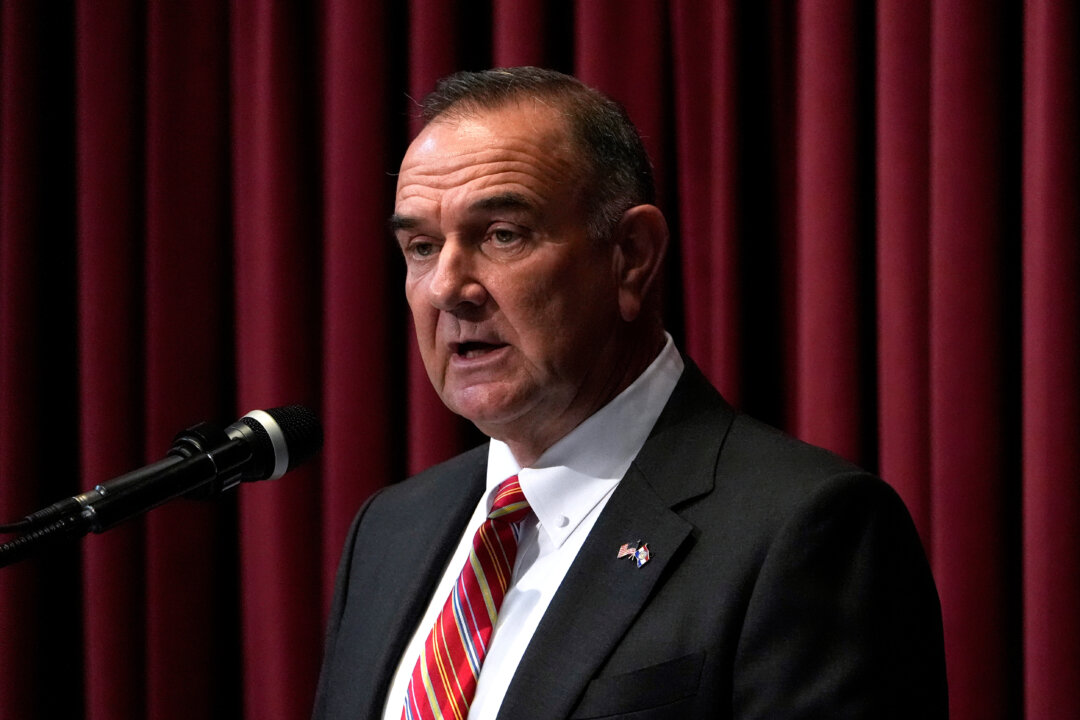Conventional wisdom holds that the Supreme Court will decline the looming opportunity to disturb Obergefell v. Hodges, the 2015 landmark ruling recognizing a constitutional right to same-sex marriage. Polling shows that a substantial majority of Americans endorse legal recognition of gay marriage, so this court, the assumption seems to be, will leave well enough alone.
But there are a few signals that suggest otherwise — that the court could be preparing to both take up the case and reverse the decision, sending the question of legal access to gay marriage back to state legislatures. That would effectively do to Obergefell and gay marriage what the court did a few years ago to Roe v. Wade and abortion — reverse a prior decision and allow a patchwork of state laws to take its place.
The petition asking the court to revisit the Obergefell decision was filed on behalf of Kim Davis, an evangelical Christian and former elected Kentucky court clerk who refused to issue marriage licenses to gay couples in the wake of Obergefell. A number of lawsuits followed, including one that led to a $100,000 judgment against her, which she is asking the court to reverse.
The court is likely to issue a decision in early October on whether to hear her case. There are at least five reasons why Davis’s appeal should be taken seriously.
First, the configuration of justices on the Supreme Court is obviously different now than it was when Obergefell was decided in 2015. The author of the majority opinion, Justice Anthony Kennedy, as well as Justice Ruth Bader Ginsberg and Justice Stephen Breyer, both of whom joined the majority, are no longer on the court. With Donald Trump having added Justices Neil Gorsuch, Brett Kavanaugh and Amy Coney Barrett, a solid 6-3 conservative majority reigns.
Second, three of the justices who are still on the court wrote their own spirited dissents to Obergefell. Chief Justice John Roberts noted that “although the policy arguments for extending marriage to same-sex couples may be compelling, the legal arguments for requiring such an extension are not. The fundamental right to marry does not include a right to make a State change its definition of marriage.” Justice Clarence Thomas also wrote a dissent, complaining that “nine judges on this court . . . enshrine their definition of marriage in the Federal Constitution and thus put it beyond the reach of the normal democratic process for the entire Nation.” And Justice Samuel Alito underscored that “[t]he Constitution says nothing about a right to same-sex marriage.”
The case only needs four votes to get before the court. If these justices feel as strongly now as they did in 2015 that the right to gay marriage is not grounded in the Constitution, it would only take one additional justice — presumably one of the newer three conservatives on the court — to vote to accept the case for Obergefell to be reconsidered. And then the whole issue is reopened for debate.
Third, in the intervening years, Dobbs happened. With it, the majority adopted the so-called “history and tradition” test as the leading standard for determining whether a constitutional right that’s not stated expressly in the text of the Constitution is nonetheless protected. Alito reasoned for the Dobbs majority that abortion was not “deeply rooted in the Nation’s history and tradition” because it was “widely (but not entirely) criminalized at the time of the 14th Amendment’s ratification.” Alito reached for snippets of 13th-century English history to shore up his argument for denying women a constitutional right today, while at the same time ignoring significant historical information to the contrary.
Under that standard, Obergefell presents a far easier case for reversal than Roe. Across the globe, no law recognized gay marriage until 2001 — and that was in the Netherlands. Under the history and tradition test, it would be irrational for this majority not to strike down Obergefell. And in fact, Thomas explicitly called for Obergefell to be reconsidered in his concurrence to overturning Roe.
Moreover, if Obergefell is struck down, the court will handily reason that it’s up to state legislatures to decide who gets marriage licenses, as with access to abortion, leaving voters free to cast ballots for candidates who support the legal right to gay marriage if they wish. (The 2022 Respect for Marriage Act only requires the federal government to recognize existing marriages; it does nothing to prevent the Supreme Court from changing its mind as to whether states can decide for themselves whether to recognize same-sex marriages moving forward.)
Overruling Obergefell could be good for the GOP, too. With pivotal congressional midterm elections coming up, an opportunity to vote against LGBTQ+ rights could turn out a subset of far-right voters in red states who might otherwise stay home.
Fourth, Davis’s claim that she was denied the right to freely exercise her religion works in her favor because the current majority is on an unmistakable trajectory of elevating the First Amendment over other constitutional and legal rights.
In Kennedy v. Bremerton School District, for example, the Court in 2022 held that a public-school football coach had a First Amendment right to offer prayers to his players after a game. The same year, in Carson v. Makin, the majority held that Maine’s offering of tuition assistance to non-religious schools in remote areas violated the religious rights of parents who wanted public money to send their kids to religious schools. (Breyer pointed out in his dissent that one of those schools touted “educational objectives” that include “ lead[ing] each unsaved student to trust Christ as his/her personal savior and then to follow Christ as Lord of his/her life,” and “develop[ing] within each student a Christian world view and Christian philosophy of life.” Another reportedly suspended gay students for engaging in “immoral activity.”)
Then in 2023, in a case called 303 Creative LLC v. Elenis, Gorsuch wrote a majority opinion holding that the First Amendment rights of a website designer were violated by the existence of a Colorado law banning places of public accommodation from discriminating against customers on the basis of LGBTQ+ status. Although the designer had never even made a wedding website for anyone, she was worried that one day she might be asked to make one for a gay couple and if she said no, Colorado could find out and issue her a fine. Once again, the Supreme Court leaned into expansive protections for religious freedoms in a way not seen before.
Fifth, as Dobbs made clear, this Court is hardly queasy about overruling longstanding precedent. Last year, the majority overruled Chevron v. Natural Resources Defense Council, which for half a century had directed courts to defer to regulatory agencies’ expertise so long as they acted within the boundaries of the underlying statute. And since Donald Trump took office on January 20, the same justices have aggressively used the emergency docket to greenlight a slew of legally egregious actions by the Trump administration without full briefing, oral argument, or written opinions. The court has cursorily sided with Trump in a case that operated to send eight migrants to South Sudan without due process; a case that all-but killed a 90-year-old precedent upholding Congress’s power to constrain presidents’ ability to remove certain executive branch officials except for cause; a case challenging DOGE’s unmitigated access to millions of Americans’ personal information held by the Social Security Administration; and a case attempting to stall the administration’s radical dismantling of the Department of Education, among several others.
The threat of political pushback from the left has proven to be irrelevant to these justices. It’s not likely to be the deciding factor with gay marriage, either.
.png)













 English (US)
English (US)